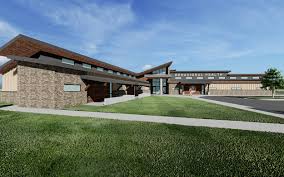
- Details
- By Chuck Hoskin Jr
Guest Opinion. For decades, the opioid epidemic has devastated communities across Oklahoma, with American Indians suffering the highest overdose death rates in the nation. Here on the Cherokee Nation Reservation, we've felt this impact acutely, as drug manufacturers and distributors targeted our most vulnerable rural communities.
Too many Cherokee families have suffered already, but Cherokee Nation is leading the charge to undo the harms of the addiction scourge. In 2022, we made history by establishing the first tribally operated harm reduction program in Oklahoma. This program has already become a lifeline for thousands struggling with addiction.
The results speak for themselves. Since September 2022, our Cherokee Nation Harm Reduction Program (CNHRP) has completed over 5,850 service encounters with 1,480 participants formally entering the program. Staff have distributed 10,400 doses of naloxone, resulting in at least 73 confirmed overdose reversals. That's 73 lives saved — sons, daughters, parents, and friends who might otherwise have been lost to this epidemic.
Our approach is rooted in Cherokee values of compassion and respect. Rather than stigmatizing those struggling with addiction, we meet them wherever they are in their recovery journey. We provide clean needles, wound care supplies, and testing for communicable diseases. Over 5,000 hygiene kits and food bags have been distributed, helping individuals feel valued while reducing harm.
The program also addresses public health concerns that affect our entire community. Through our needle exchange program, we've collected nearly 105,000 used needles, reducing the spread of infectious diseases like HIV and hepatitis C while keeping these items safely out of our parks, streets and waterways. We have also installed sharps disposal kiosks in two rural communities that our mobile outreach team serves each week.

Now, this vital program faces uncertainty. Oklahoma’s law allowing for harm reduction programs will expire in 2026 without legislative action. That’s why I'm asking our state legislators to support HB 2012, sponsored by Rep. Daniel Pae and Sen. Todd Gollihare, which would extend this sunset provision for another five years.
Some may question whether harm reduction truly helps address addiction. As both a leader and a Cherokee citizen who has witnessed the devastation of substance abuse in our communities, I can unequivocally say that it does. Harm reduction isn't about enabling addiction — it's about keeping people alive until they're ready to seek treatment and connecting them to ways to get more help, while reducing the community-wide impacts of addiction.
Traditional addiction responses have their place, but they don't reach everyone. Through our partnerships with community groups like the Peaceful Warrior’s Way and Recovery Rez Wellbriety, we've integrated cultural practices into recovery, connecting participants with their Cherokee heritage through activities like our Three Sisters Garden, talking circles and drum ceremonies. This cultural connection provides a powerful foundation for hope and healing.
The Cherokee Nation has invested heavily in fighting the epidemic, including committing over $100 million from our opioid settlement funds toward treatment facilities and programs. Our harm reduction program complements these investments by reaching those who might otherwise fall through the cracks.
I call on our state legislators to support HB 2012 and ensure that harm reduction programs may continue doing their important work in Oklahoma. The data is clear: these programs save lives, reduce disease, and open pathways to recovery. By extending the sunset, we can ensure this life-saving work continues uninterrupted.
Chuck Hoskin, Jr. is the prnicipal chief of the Cherokee Nation.
More Stories Like This
Technology Rooted in Tradition is Strengthening Cherokee NationThe Lumbee Tribe of North Carolina: #575
Tribes Do Not Need a Greenlight to Build Renewable Energy
Law Should Not Get in the Way When "Manifest-ing Destiny"
Celebrating 35 Years of Gaming Success
Help us defend tribal sovereignty.
At Native News Online, our mission is rooted in telling the stories that strengthen sovereignty and uplift Indigenous voices — not just at year’s end, but every single day.
Because of your generosity last year, we were able to keep our reporters on the ground in tribal communities, at national gatherings and in the halls of Congress — covering the issues that matter most to Indian Country: sovereignty, culture, education, health and economic opportunity.
That support sustained us through a tough year in 2025. Now, as we look to the year ahead, we need your help right now to ensure warrior journalism remains strong — reporting that defends tribal sovereignty, amplifies Native truth, and holds power accountable.
 The stakes couldn't be higher. Your support keeps Native voices heard, Native stories told and Native sovereignty defended.
The stakes couldn't be higher. Your support keeps Native voices heard, Native stories told and Native sovereignty defended.
Stand with Warrior Journalism today.
Levi Rickert (Potawatomi), Editor & Publisher

